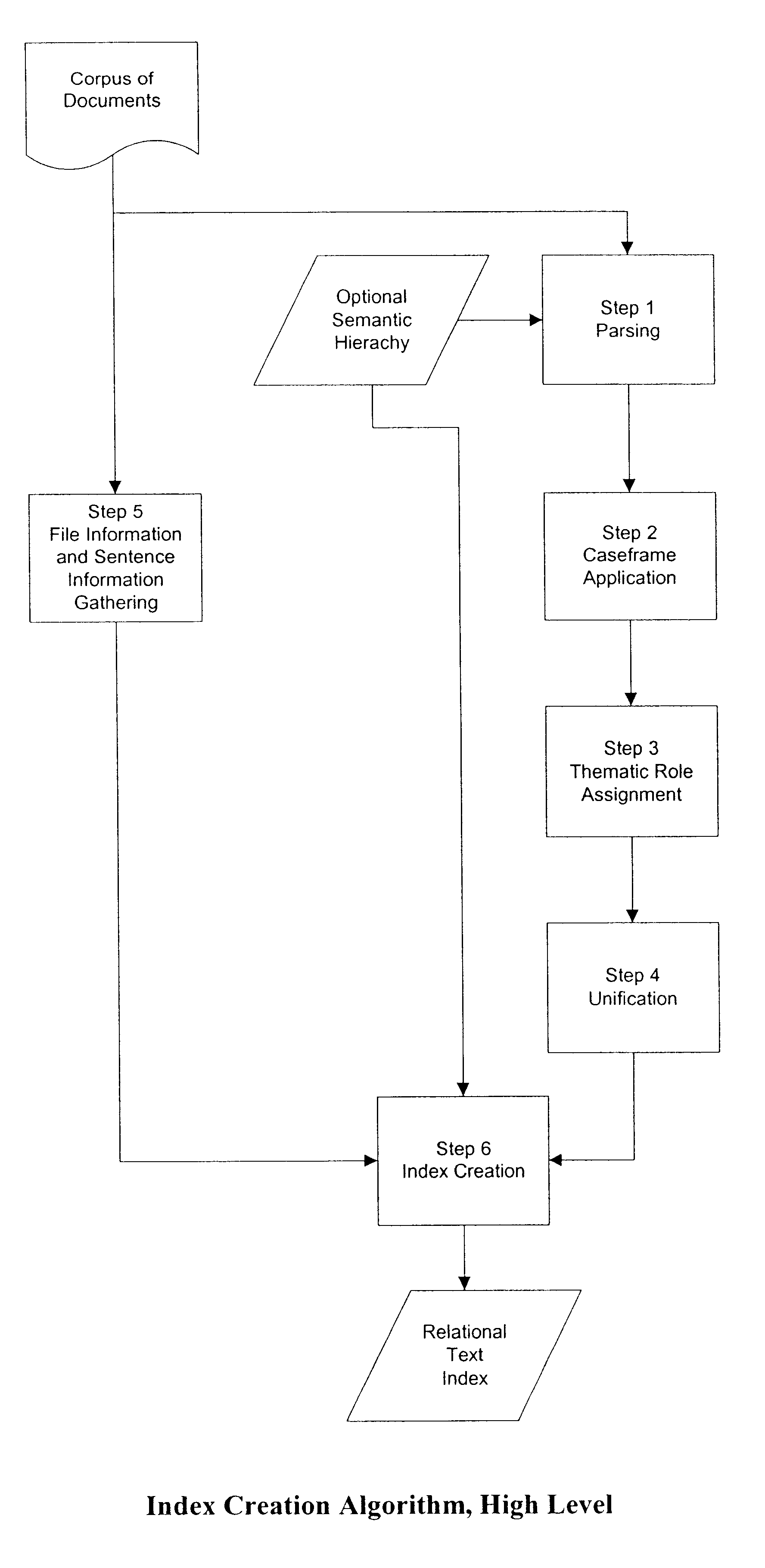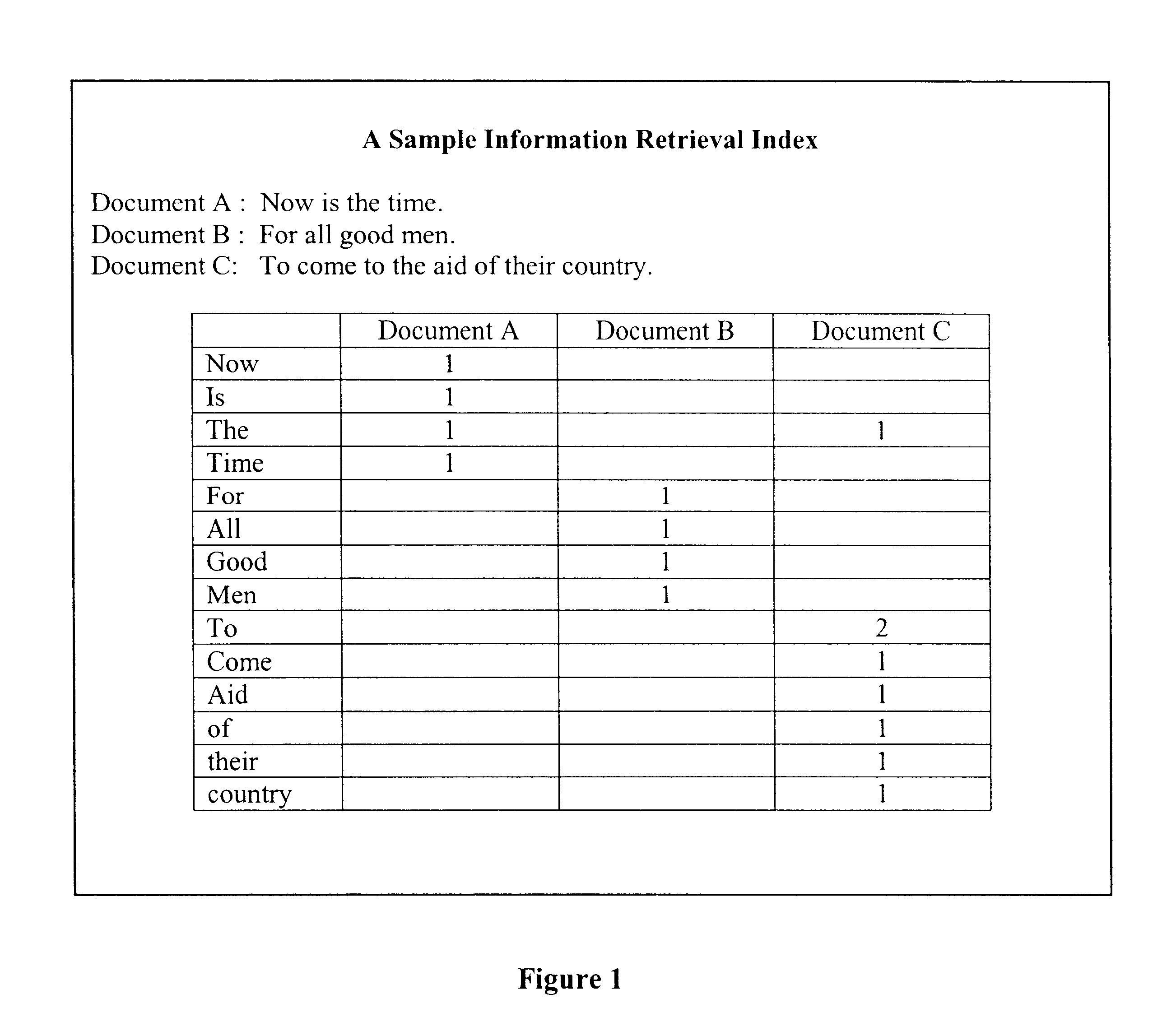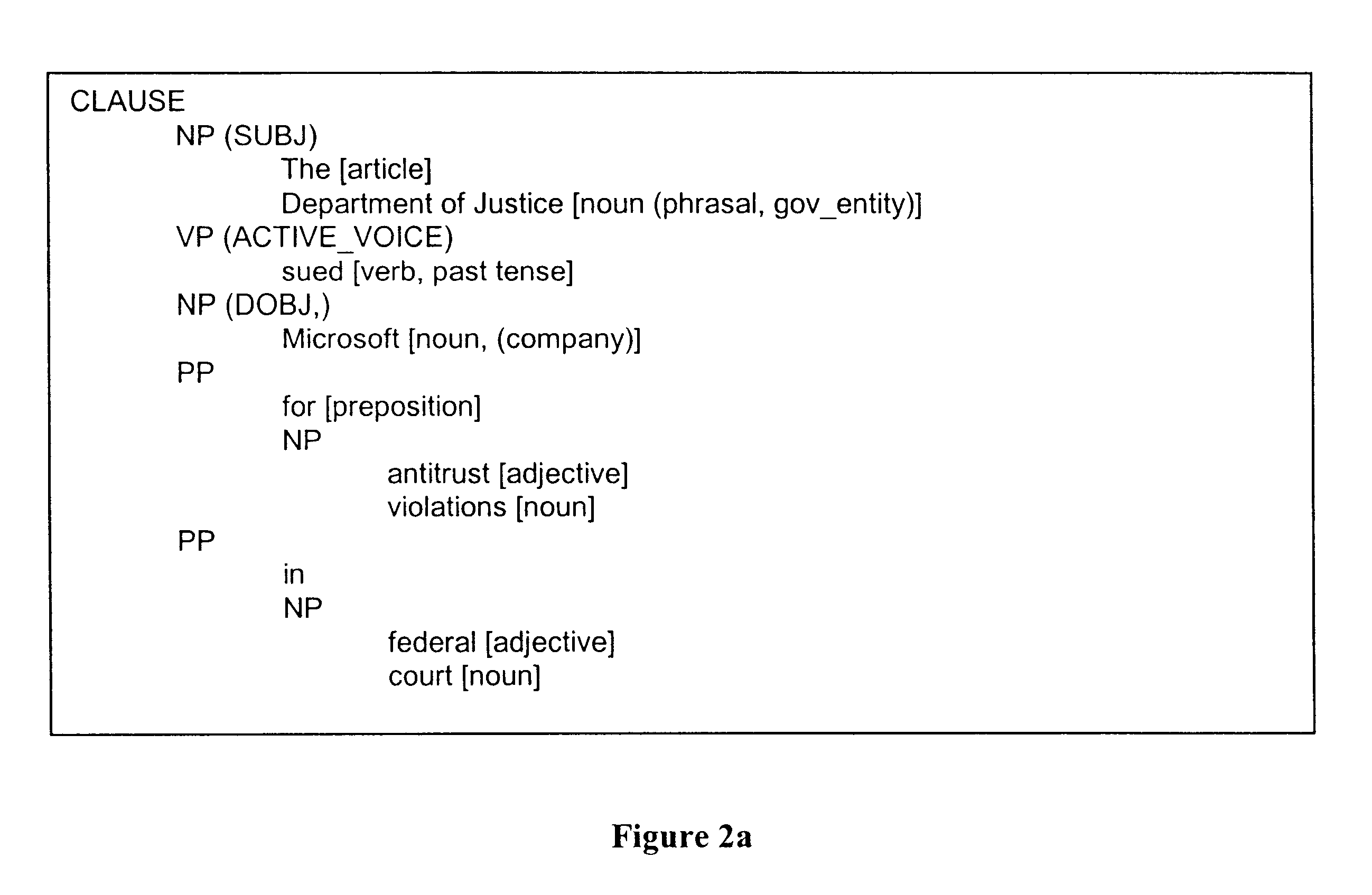Relational text index creation and searching
a technology of relational text and index, applied in relational databases, instruments, data processing applications, etc., can solve the problems of inaccuracy, lack of precision, and inability to capture words in isolation
- Summary
- Abstract
- Description
- Claims
- Application Information
AI Technical Summary
Benefits of technology
Problems solved by technology
Method used
Image
Examples
Embodiment Construction
Consider the following sentence:
The Department of Justice sued Microsoft for antitrust violations in federal court.
Step 1 (Parsing)
Step 1 performs parsing, which creates the structural representation depicted in FIG. 2a. In this example, the parsing system has added additional information to some elements of the sentence, e.g. the fact that "Microsoft" is semantically a company. Such additional information can assist later stages of processing, particularly the thematic role assignment state.
For a graphical representation of this sentence parse, see FIG. 2b. In this figure, parsing, caseframe application, and thematic role assignment has been performed, indicating the participants in a litigation event, e.g. Microsoft is tagged as both an object (the generic conceptual role) and defendant (the subject-specific thematic role). FIG. 2b represents the processing of a sentence after Steps 1, 2, and 3.
Step 2 (Caseframe Application)
Once parsing is complete, the system applies caseframes t...
PUM
 Login to View More
Login to View More Abstract
Description
Claims
Application Information
 Login to View More
Login to View More - R&D
- Intellectual Property
- Life Sciences
- Materials
- Tech Scout
- Unparalleled Data Quality
- Higher Quality Content
- 60% Fewer Hallucinations
Browse by: Latest US Patents, China's latest patents, Technical Efficacy Thesaurus, Application Domain, Technology Topic, Popular Technical Reports.
© 2025 PatSnap. All rights reserved.Legal|Privacy policy|Modern Slavery Act Transparency Statement|Sitemap|About US| Contact US: help@patsnap.com



